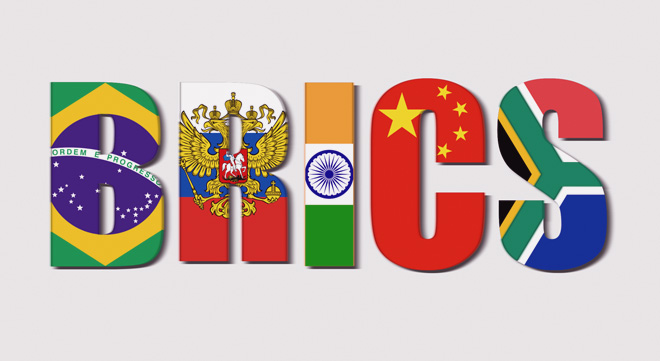“What ill are we trying to cure?” This is the question that should be asked when considering creating a BRICS reserve currency, says South African Reserve Bank (Sarb) Governor Lesetja Kganyago.
Talk that the BRICS countries – Brazil, Russia, India, China, and South Africa – were working on establishing a new reserve currency to serve their economic interests began making headlines in October last year.
In a virtual address to the 2023 BRICS Summit on 23 August, Russian President Vladimir Putin said the process of de-dollarisation is “irreversible” and “gaining pace”.
Read: BRICS discussion on dollar dominance ‘a good debate to have’
Reuters reported that BRICS leaders have said they want to use their national currencies more instead of the dollar, which strengthened sharply last year as the Federal Reserve raised interest rates and Russia invaded Ukraine, making dollar debt and many imports more expensive. The developing countries want to use the new currency to protect themselves from fluctuations in the dollar exchange rate.
During an interview with Kganyago last week, senior news anchor Alishia Seckam asked the Sarb whether a BRICS currency was feasible considering the economic, political, and geographic disparities between the five member states. Was this more of a political project?
“The euro was a political project too, and so is the proposal of an African currency. And so, if there is a political project to create a BRICS currency, well, let the people who take those decisions make those decisions,” Kganyago said.
As to what it will take to have a BRICS currency, the governor said, for starters, it must have an issuer.
“So, there must be a Brexit central bank […] And I do not want to get into the politics of it. But a decision will have to be made. Where is the central bank going to be located? And then there’s going to be contestation.”
Second, he said, there cannot be one currency and five fiscal policies.
“The lesson from the euro is that you need a banking union. So, you’d have to have a banking union and common regulation of banks in the BRICS countries. If you can do all of those things and have a common inflation rate, then you are talking.”
However, he said a case must be made for what exactly it is that BRICS were hoping to “cure” with an African reserve currency.
“If you say that, ‘Given the volatility of the US dollar…’. Who said that that currency will be less volatile? Currencies are all volatile; it will be as volatile as the other currencies. It might actually even be more volatile, given that it has got five fiscal policies and five banking legislations.”
Kganyago said the central banks in the BRICS member countries believe that trade must be facilitated.
“And when trade is facilitated, there must be settlement. And settlement needs currencies. And what we have been working on in the BRICS central banks is the interconnectedness and inter-operability of our national payment systems so that settlement can be easy across the border.”
He said that would be more useful than a BRICS currency.
At present, Chinese and South African companies can settle with each other – using either rands or renminbi – via a renminbi clearing centre in Johannesburg.
“And if they run short of rand or renminbi, there are swap lines between the People’s Bank of China and the South African Reserve Bank. We do not need a BRICS currency.”
But, Kganyago said, if the creation of a BRICS currency was a political project, political decisions have to be taken.
“What matters is the trade, and we are saying that central banks are capable of facilitating that,” he said.



